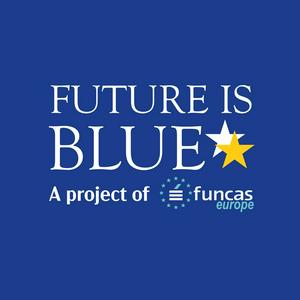As 2025 draws to a close, Europe faces a harsher global environment shaped by a more assertive second Trump administration, intensifying economic pressure from China, and persistent internal weaknesses. In this episode of Future is Blue, Iain Begg (LSE) and Raymond Torres (Funcas) argue that Europe’s response over the past year has been largely defensive, constrained by fragmented leadership, stalled internal reforms, and a governance model ill-suited to a world increasingly driven by power and coercion rather than cooperation. They discuss how Trump’s use of “sharp power,” China’s growing trade imbalance with the EU, and Europe’s failure to translate diagnoses such as the Draghi report into action have left the bloc vulnerable. Looking ahead to 2026, both see cautious grounds for optimism — from easing financial conditions to renewed fiscal space — but stress that progress will depend on Europe’s ability to act collectively, particularly in areas such as defence, technology, and capital markets, rather than continuing to rely on national solutions in a geopolitical world.


